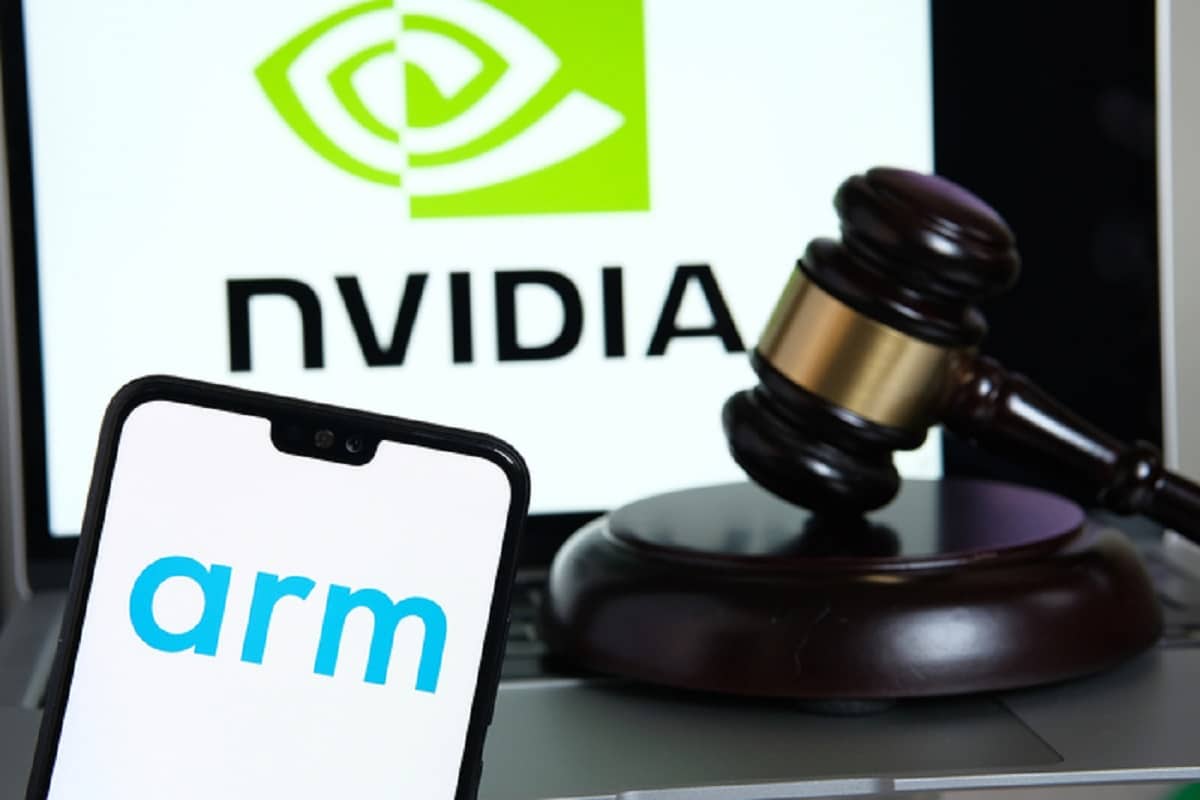
One of the news that gave a lot to talk about in 2020, fue the planned acquisition of Arm by SoftBank by Nvidia and which failed due to "significant regulatory challenges."
British chip company Arm's $66 billion sale to Nvidia flopped after regulators in the United States, the United Kingdom, and the European Union raised serious concerns on its effects on competition in the global semiconductor industry.
The deal by the largest in the chip industry would have seen California-based Nvidia take control of a company that makes technology at the heart of most mobile devices around the world.
Arm makes the processors that are in millions of smartphones, including Apple iPhones and Android devices powered by Qualcomm chips. The company counts nearly all of the major semiconductor companies among its clients.
And to which a handful of major tech companies that rely on Arm's chip designs, including Qualcomm and Microsoft, opposed the purchase.
The deal has come under intense scrutiny since it was announced, because at the time the Federal Trade Commission of the United States filed a lawsuit to block the transaction for antitrust reasons. Last year, UK competition authorities announced an investigation into the sale.
Technology and semiconductor companies they feared that if Nvidia owned Arm, it might further their own business about their customers who may not have an alternative to ARM technology.
"The proposed vertical arrangement would give one of the largest chip companies control of computer technology and designs that rival companies rely on to develop their own chips," the FTC said in December.
SoftBank said the $1,250 billion deposit it received as part of the deal is non-refundable and will be recognized as earnings in the fourth quarter of the fiscal year ending March 31, 2022. Arm was independent until 2016, when it was bought by SoftBank Group for $32 billion.
In the United KingdomWhere politicians see Arm as a strategic national asset, attention should focus on whether a UK competition review of the deal was expanded last year to include national security considerations.
Herman Hauser, co-founder of ARM, said that:
“It would be a disaster if US rival NVIDIA managed to buy the UK company it helped build. »
that same month, Hauser published an open letter to the British Prime Minister, Boris Johnson, and posted a petition online asking for help to “Save ARM”. In a second point raised in opposition to the company acquisition, Hauser said NVIDIA would "destroy" ARM's business model, which involves licensing chip designs to some 500 other companies, including several that compete directly with the acquirer. he said, adding that the new deal will create a monopoly.
Hauser he also addressed the issue of ARM's "neutrality." "Being able to sell to everyone is one of the core principles of ARM's business model," he said. However, people close to SoftBank said the company would prefer to list Arm in New York and resist nationalist pressure. US markets are placing higher valuations on tech stocks, even after a recent sell-off.
Rene Haas, head of the intellectual property unit, said in an interview that no decision has been made on where Arm will be listed or whether SoftBank will continue to have a stake majority after listing.
According to reports, Nvidia abandoned its pursuit of Arm at a February 7 board meeting. Nvidia CEO Jensen Huang hoped to use Arm's processors to bolster his company's growing role in data centers. Arm said in a statement that he is on track to achieve record levels of royalty income, license income and earnings in the current fiscal year, which ends in March.
In December 2022, the Federal Trade Commission (FTC) filed suit to block acquisition of Arm by Nvidia, the semiconductor design company, saying the blockbuster deal would unfairly stifle competition:
“The proposed vertical deal would give one of the largest chip companies control of the computing technology and designs that rival companies rely on to develop their own competing chips. The FTC lawsuit alleges that the combined company would have the means and incentives to stifle innovative next-generation technologies, including those used to operate data centers and driver assistance systems in cars.
Sources say companies like Intel, Amazon and Microsoft gave regulators enough information to stop the deal. Previously, they argued that Nvidia cannot preserve ARM independence because it is itself an ARM customer. Therefore, it could potentially become both a supplier and a competitor to ARM's licensees.
"We continue to uphold the view expressed in detail in our latest regulatory filings that this transaction provides an opportunity to accelerate ARM and drive competition and innovation," Nvidia said in response to criticism.
In addition, China would also have helped block the acquisition of Arm by Nvidia. In the current context of a trade war between China and the United States, Chinese regulators, worried about seeing a key technology fall into the hands of an American company, have also questioned the agreement.
China is said to be increasingly concerned that it does not control key technologies, particularly those related to semiconductors. You'd spend more money importing semiconductors than importing oil, and ARM chips are as ubiquitous in China as they are elsewhere.
Source: https://group.softbank